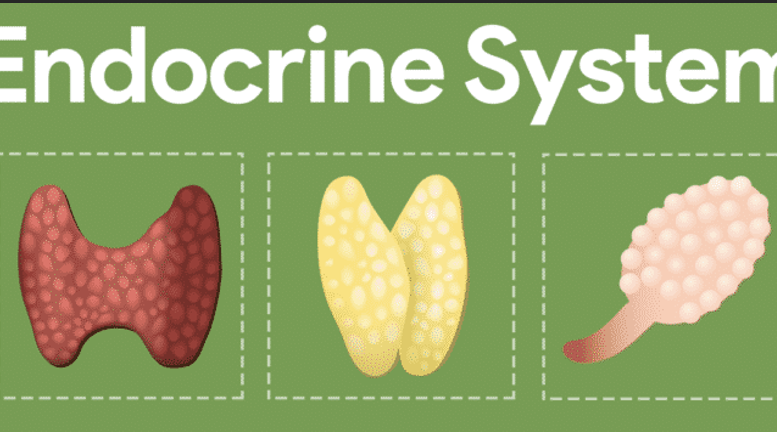Endocrine / Hormone therapy for cancer treatment:
Have you recently been diagnosed with prostate cancer, breast cancer, or endometrial cancer? Based on the kind and stage of cancer that you have been diagnosed with, your oncologist will begin to outline the treatment approach.
While traditional cancer treatments frequently include chemotherapy, surgery, and radiation, science has recently enabled particular cancers to be cured. Fortunately, your tumor or cancer fits into this group, and hormone therapy is the treatment of choice.
Our bodies manufacture many hormones to regulate how the cells in each body part behave. The sex hormones progesterone, testosterone, and estrogen govern the health and activity of the human reproductive organs.
Other hormones influence cell behavior in different ways. Insulin, thyroid hormone, cortisol, and adrenaline are critical hormones for cell and body metabolism.
Hormones are involved in the development of various malignancies. Hormone control can therefore be utilized to slow or accelerate cancer development. These therapies are referred to as hormone therapy, sometimes known as endocrine therapy.
This treatment is typically used to treat prostate, breast, and endometrial cancers, but it can also treat other types of cancer.
Hormone therapy is termed systemic since the hormones targeted by the treatment circulate throughout the body. Hormone replacement therapy drugs target a specific hormone that circulates throughout the body, allowing therapy to be administered to any portion of the body where the hormone is found.
Different types of cancer treatments available
Other cancer therapies include immunotherapy, bone marrow transplant, and targeted therapy.
The vast majority of people now recognize that not all tumors are malignant. Some are localized and curable, but others spread slowly at first and swiftly after that.
Unfortunately for us, the first indication of cancer generally appears when it has advanced to quickly spreading.
According to Dr. Sandeep Nayak, who is recognized for offering the finest cancer treatment at one of the leading Cancer Treatment Hospitals in Bangalore, MACs Clinic, course correction for cancer treatments is often challenging. The patient may or may not live.
Dr. Nayak specializes in robotic surgery and is a pioneer in the field. It is minimally invasive, allowing patients to recuperate faster without prolonged hospitalization, less blood loss, and no scarring.
What is the mechanism of action of hormone therapy in the treatment of cancer?
Hormone therapy puts a medicine into a patient’s body that looks for a particular hormone. Different hormone therapies provide different results. These are some examples:
- Suppress hormone production.
- Stop the hormone from attaching to cancer cells.
- Modify the hormone’s structure to alter its behavior.
Consequently, we can stop or slow the course of cancer and alleviate the symptoms associated with certain tumors.
Types of hormone therapy
Breast cancer is a kind of cancer that primarily affects women.
- Aromatase inhibitors include anastrozole, exemestane, and letrozole.
- Tamoxifen and Raloxifene are both selective estrogen receptor modulators.
- Estrogen receptor antagonists include fulvestrant and toremifene.
- Luteinizing hormone-releasing hormone antagonists, such as leuprolide, triptorelin, and goserelin. The final option is an oophorectomy, which includes the removal of the ovaries. Prostate cancer is a kind of cancer that affects the prostate gland.
- Anti-androgens such as enzalutamide, bicalutamide, and a few more. CYP17 inhibitors include ketoconazole and abiraterone.
- The luteinizing hormone-releasing hormone agonists and antagonists are goserelin, degarelix, triptorelin, and leuprolide. The last option is to have the testicles surgically removed.
Endometrial carcinoma is a form of cancer that affects the uterine lining.
- Progestins include megestrol acetate and medroxyprogesterone acetate.
- Luteinizing hormone-releasing hormone agonists and antagonists, such as goserelin and leuprolide.
- Aromatase inhibitors include exemestane, letrozole, and anastrozole.
- For example, raloxifene and tamoxifen are selective estrogen receptor modulators.
Adrenal cancer is a kind of cancer that affects the adrenal glands.
- Estrogen receptor antagonists include toremifene and fulvestrant.
- For example, raloxifene and tamoxifen are selective estrogen receptor modulators.
- Mitotane is an adrenolytic, for example.
Methods of hormone treatment administration
Before we get into the various techniques of administering the treatment, there are a few fundamental guidelines to consider when utilizing it. Your oncologist will give you specific instructions on how to take medicine based on the kind of cancer being treated and the type of therapy being administered.
Please adhere to the instructions in the letter.
Oral pills must be taken precisely on time, every time. You must set a reminder for it.
Intramuscular injections are administered into the arm, leg, or hips. Subcutaneous injections are those that are given just under the skin of the abdomen.
You can give them yourself after being instructed by the doctor.
Surgical removal of hormone-producing organs, such as the testicles in prostate cancer and the ovaries in breast cancer.
As a result, if organ removal is used as hormone treatment, you may experience the following long-term adverse effects. Apart from that, there are temporary negative effects.
The following are some of the experiences that males may have:
- Hot flashes
- Erectile dysfunction (ED) is a male-specific ailment.
- Sex urge has diminished.
- Fatigue
- Bone degeneration
- Weight gain
- Memory issues
Women may suffer from:
- Heat flashes
- Sex urge has diminished.
- Dryness, discomfort, or discharge from the cervix
- Nausea
- Fatigue
- Muscle and joint discomfort
- Bone degeneration
- Other malignancies, stroke, heart disease, blood clots, and cataracts are also at higher risk.
Conclusion:
Because of substantial advancements in cancer therapy, if you have cancer in this day and age, your chances of survival are excellent. When your cancer has advanced to the point where it is a race against time, some of them are combined to get the desired outcome.
Dr. Sandeep Nayak believes in being proactive regarding health issues and recommends people have screening tests at least once a year to keep ahead of the disease.



Be the first to comment on "Hormone Therapy in the Treatment of Cancer – MACS Clinic Bangalore"